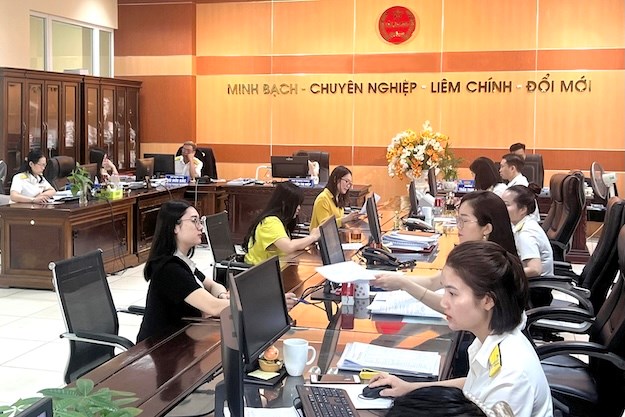The fact that some shops and businesses have announced that they will not accept payment by bank transfer, and some places even collect a small amount of money when customers pay by bank transfer has attracted people's attention.
According to many long-time traders, this is actually a form of public tax evasion. Because if they only pay in cash, shops and businesses can hide their real revenue.
Mr. Tran Minh Son - the owner of a cafe in Hai Ba Trung district (Hanoi) said that in the short term, sellers may benefit from avoiding paying taxes when not making sales public. However, in the long run, it will be disadvantageous.
"Firstly, there is now a trend of cashless payments, people are responding with many advantages, if the restaurant abandons payment transfers, it will lose customers. After that, the tax authority may determine the violation and collect it," Mr. Son shared.
For some stores, online traders who still want to transfer money will be required to pay a small amount and is understood as a VAT percentage.
Many people were not happy with this. "I just bought clothes online, normally only for shipping, but since the beginning of June, the buyer asked me to add a small amount. Although the value is not large, I still feel uncomfortable," said Ms. Hanh (Hoang Mai District, Hanoi).

Meanwhile, on social networking sites, there are many ways to point out ways to conceal revenue such as recording transfer content not related to payment for buying and selling goods and services, receiving cash payments.
Some people with tax experience believe that this will not help tax evasion because the authorities will have measures to verify whether it is revenue or not. If the taxpayer cannot explain clearly, there is a basis for suspected tax evasion.
On the other hand, even though it is written with different content, it is still the cash flow of business, sales, service provision and collection. The above forms can all be considered intentional tax evasion.
The tax authority believes that according to the tax management law, determining taxable revenue of business households is not only based on bank transfers but can also collect cash and other forms of payment.
Mr. Nguyen Tien Minh - Deputy Head of Tax Department 1 (Tax Department, Ministry of Finance) said that this not only goes against the trend of global payments but is also not in line with the policy of the Party and the Government, which is non-cash payment.
"In cases where individual business households do business and collect cash for tax evasion or tax evasion, the tax management law has stipulated sanctions such as tax fixation, sanctions for false declaration, sanctions for tax evasion and even criminal prosecution," Mr. Minh informed.











